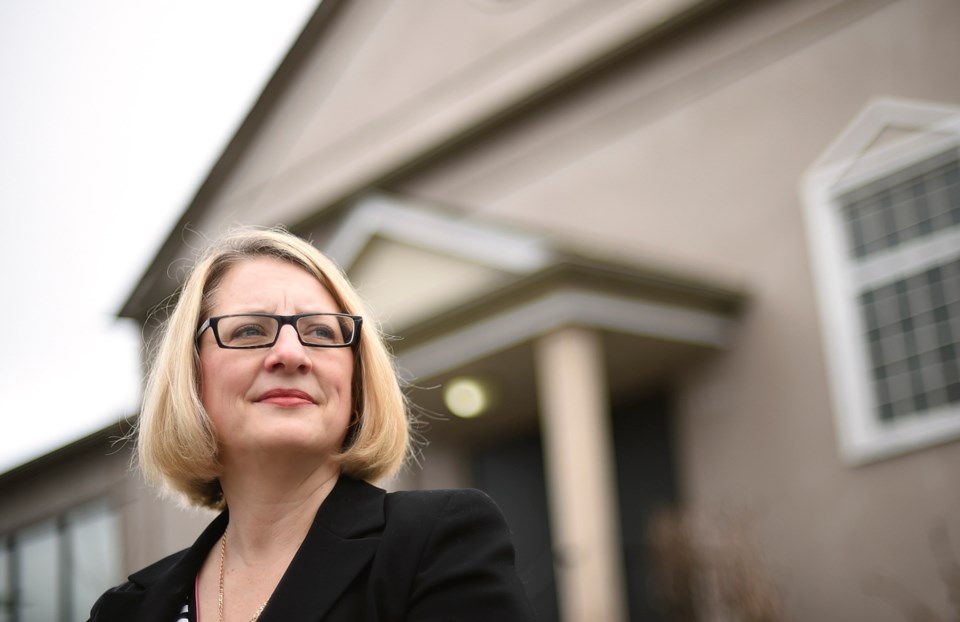You may have missed the fact that last Sunday was World Religion Day. It hasn’t quite crept up the hierarchy of holidays. It’s not accompanied by fireworks or a countdown of shopping days. In fact, there is no proscribed way of marking it at all.
World Religion Day was launched in 1950 by American Baha’is and, in many ways, reflects the broad principles of the Baha’i faith.
“It is to celebrate that spiritual principles are universal and that all world religions are fundamentally one,” says Susan Ardekany, a member of the Spiritual Assembly of the Baha’is of Vancouver. “They’re all intended to unify and to bring people together.”
The Baha’i faith emerged in 19th century Persia, but persecution there (which continues under the Islamic Republic of Iran today) resulted in the global headquarters of the religion being in Haifa, Israel.
Baha’is, she says, believe in “progressive revelation,” the idea that, as mankind matures, God renews his covenant. This is consistent with the Christian view that Jesus represents the manifestation of God and supersedes, if you want to look at it that way, the covenant with Moses that is the foundation of Judaism and the Muslim view that Muhammad was the last prophet sent by God. Baha’is view Bahá’u’lláh (1817-1892) as God’s prophet.
Unlike some other religions, though, Baha’is are not evangelical.
“We don’t have that concept where everyone who is not a Baha’i is damned,” says Ardekany. “We don’t have that concept because we believe that everyone, all souls, are loved by God.”
There is no denying the differences between religions, especially it seems at this moment in history, yet Baha’is cleave to the view that “the earth is but one country and mankind its citizens.”
Regardless of theological division, Baha’is believe that all religions are unified by connection to a single deity and that, Ardekany says, “God will never leave humanity and humanity will follow God’s spiritual principles.”
“There are fundamental verities that are spiritual in nature and that all faiths follow,” she adds.
Still, it must be hard to look at the state of inter-religious warfare in the world and try to see the manifestation of these good ideas, I suggest.
“When Baha’is look at the condition of the world, we see that there are two processes going on, one is integrative and one is disintegrative,” she says. “While there is this tremendous societal disintegration, there is also kind of an efflorescence of light and good that you can also see. We tend to focus on the dark side of what’s going on and we look at it as human nature has both those aspects to it. It has a higher nature and a lower nature.
“We think all men have been created to carry forward an ever-advancing civilization and so I think that the message that the Baha’is have is really one of hope and love,” she says. “But having said that, in order to achieve that, what we have to look at what needs to be done.”
To bring to fruition their ideals, Ardekany says, Baha’is teach the equality of men and women, the harmony of science and religion, that human rights need to be recognized. The goal is for people to recognize the fundamental humanity in one another and that we are all spiritual beings, find that human connectedness and then stop focusing on the things that divide us, our different cultures, the different places that we come from, she says.
“We’re definitely not there yet,” she admits, but Baha’is take a hopeful outlook. “Many people think there’s a lot of evil in the world, there’s a lot of darkness. Well what is it that dispels the darkness? We need the light. The absence of light is darkness. If we can create the conditions of light in the world, then it dispels the darkness. The more fear and hate and all these very dark emotions, the antidote to them is love.”
She quotes Abdu’l-Bahá, the son of Baha’i’s founder Bahá’u’lláh and his anointed successor as head of the faith: “When a thought of war comes, oppose it by a stronger thought of peace.”
World Religion Day may have been last weekend, but Ardekany says the ideas it perpetuates can be practised any day, in any way.
“There is no right way to commemorate World Religion Day,” she says. “It would be great for more people to know about World Religion Day and feel free to observe it in their own way. Initiate an open invitation to one another as neighbours to come together and celebrate our diversity and look at that concept of unity in diversity.”
It is, she says, exactly what the world needs now. The world headlines may be bad, but look at the positive work of the Truth and Reconciliation Commission, she says, or the welcoming way Canadians have responded to refugees from Syria and Iraq.
“It’s one thing that distinguishes Canada as a nation too, that sense of pluralism,” Ardekany says. “We have it faith-wise and we have it culture-wise to really just embrace one another in our humanity.”
@Pat604Johnson



